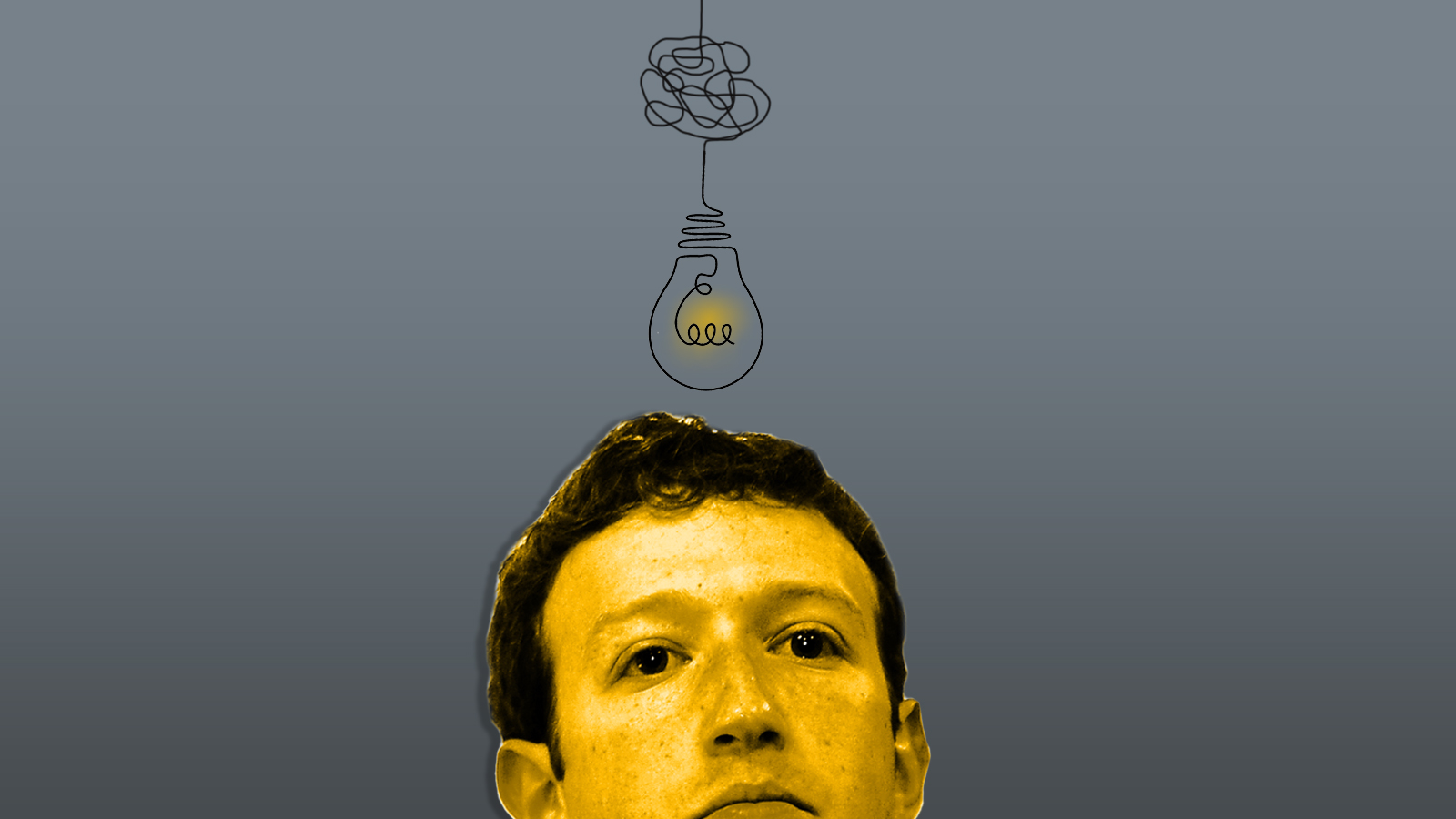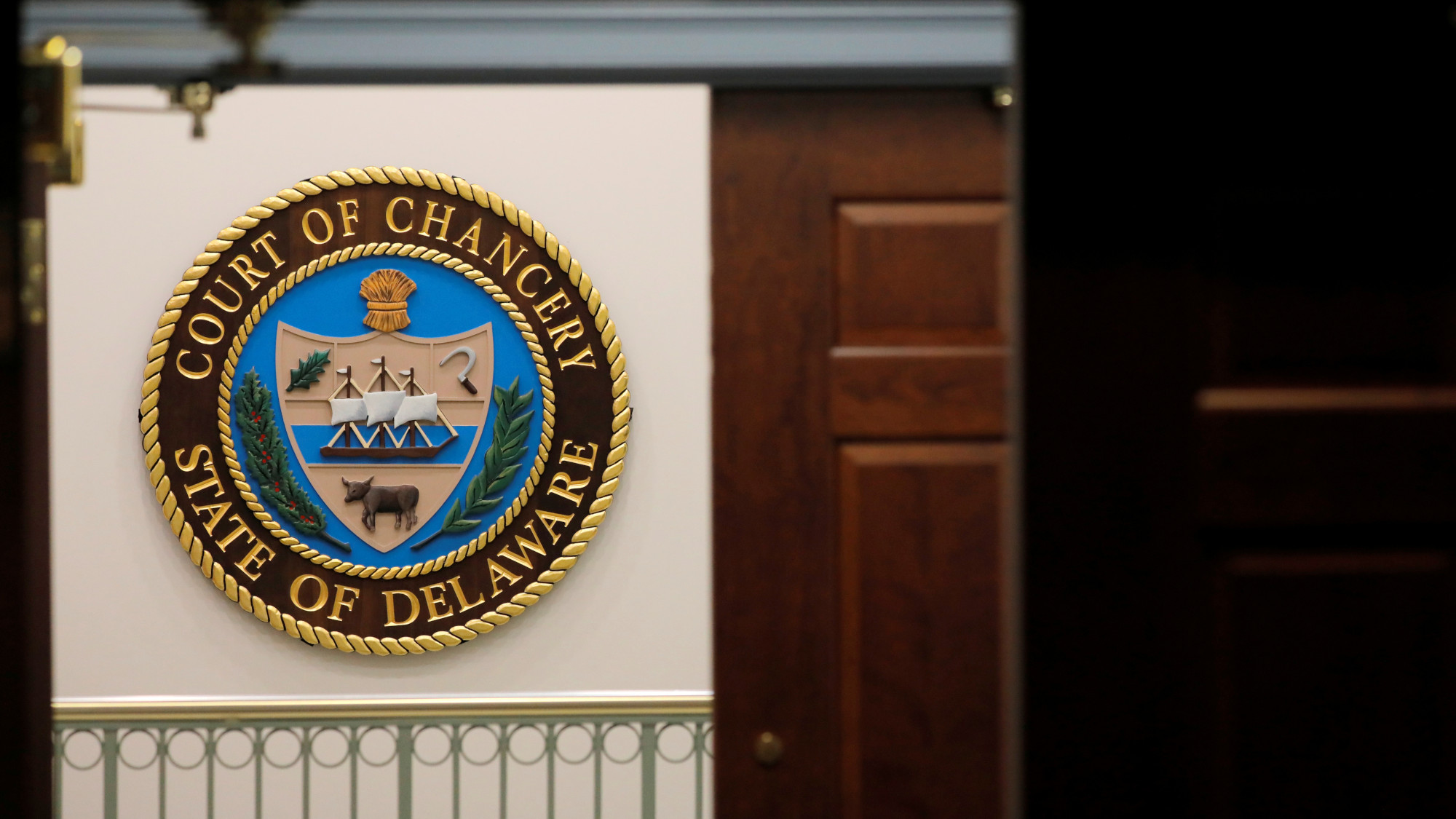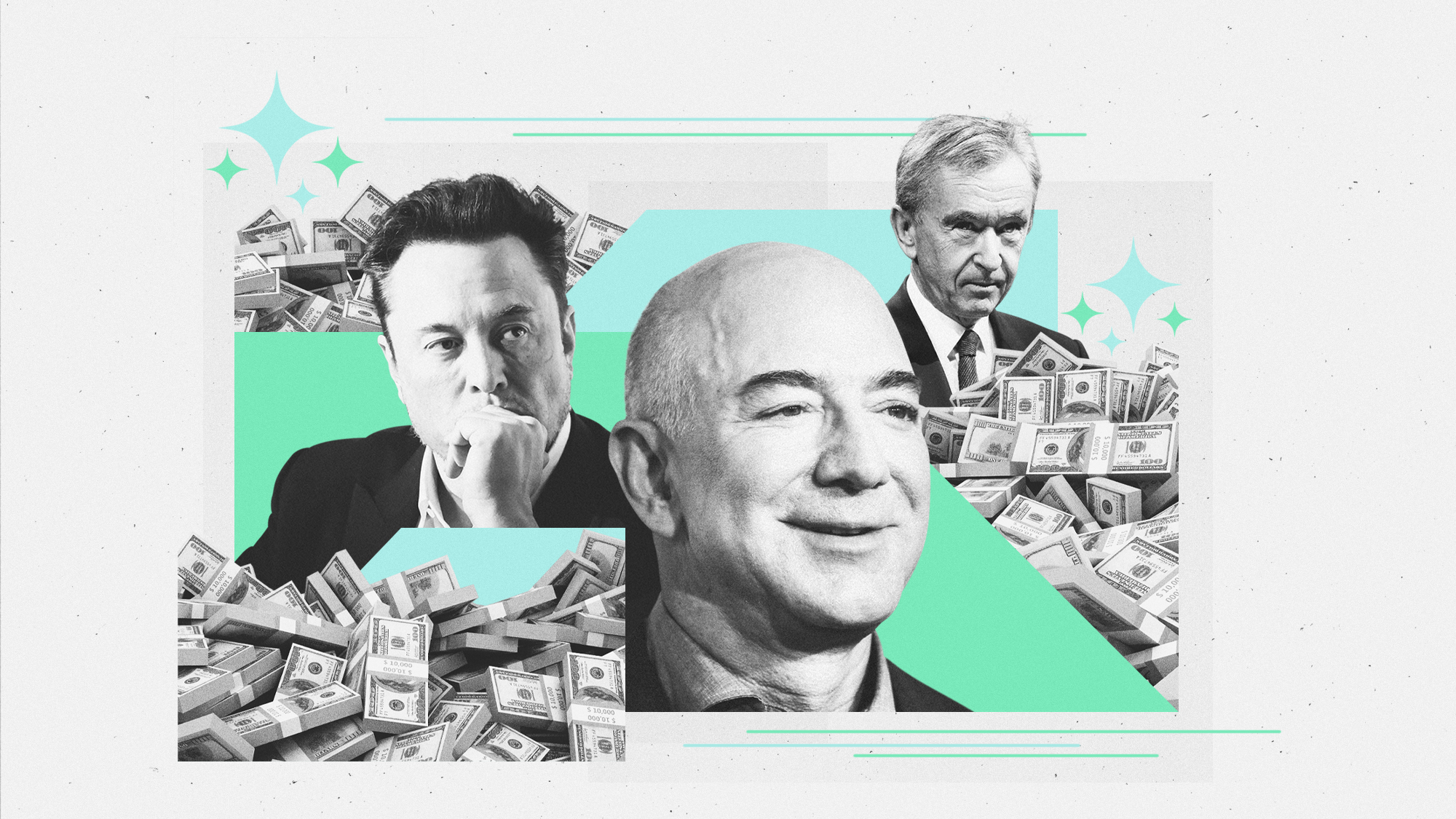Is Mark Zuckerberg out of ideas?
The subscription service Meta Verified sounds awfully familiar


A free daily email with the biggest news stories of the day – and the best features from TheWeek.com
You are now subscribed
Your newsletter sign-up was successful
Meta CEO Mark Zuckerberg announced Meta Verified in a post on his Facebook page on Feb. 19. The verification service resembles Twitter's new subscription service Twitter Blue. Is Zuckerberg's latest move proof that Meta's run out of innovative ideas?
What is Meta Verified?
Zuckerberg described Meta Verified as "a subscription service that lets you verify your account with a government ID, get a blue badge, get extra impersonation protection against accounts claiming to be you, and get direct access to customer support." Subscribers will have access to live customer support. Meta will test the service in Australia and New Zealand before eventually debuting it in other countries. Meta Verified's fees start at $11.99 monthly on the web or $14.99 monthly on iOS. "This new feature is about increasing authenticity and security across our services," Zuckerberg added in his announcement.
The company advertises the service as a way to "grow your presence on Instagram and Facebook." Meta told Insider content creators who sign up for Meta Verified would also get an "increased visibility and reach" in search results and recommendations. Head of Instagram, Adam Mosseri, said the service would not have "a meaningful amount of incremental reach if you're a large creator," so Meta is "testing to see if it is compelling to small creators because we want to help small creators get a leg up." As the company tests the new service, it assures users that "there will be no changes to accounts on Instagram or Facebook that are already verified based on prior requirements."
The Week
Escape your echo chamber. Get the facts behind the news, plus analysis from multiple perspectives.

Sign up for The Week's Free Newsletters
From our morning news briefing to a weekly Good News Newsletter, get the best of The Week delivered directly to your inbox.
From our morning news briefing to a weekly Good News Newsletter, get the best of The Week delivered directly to your inbox.
Is Meta running out of ideas?
Meta has a long history of copying — if not acquiring — its competitors, Tama Leaver, professor of internet studies at Curtin University in Australia, tells Wired, "so it's no surprise that seeing Twitter get away with offering basic functionality as a premium service, Zuckerberg is trying to do the same." But the decision to mimic Twitter's subscription model "shows a distinct lack of new ideas," especially since the company "has shed staff and is hemorrhaging money in building a metaverse that no one seems all that interested in right now."
Paying for social media features that used to be free has started to become the norm, social media analyst Matt Navarra tells Wired. After seeing Snapchat, Discord, and Twitter launch subscription plans, Meta might feel more comfortable launching their own. "The risk there is reduced for them in terms of whether it will be a success," Navarra says.
Zuckerberg may be "a shameless copycat," but "the strategy works," writes Bloomberg analyst Parmy Olson. Many of the products he's copied, such as Reels or Stories, have succeeded on Instagram. "This will likely be the case with Zuckerberg's new subscription service, even though at first glance it looks incredibly off-putting." He has a knack for making ideas that aren't profitable for other companies profitable for Meta. Twitter CEO Elon Musk has "forged a path" with Twitter Blue, and Zuckerberg can follow it, paving the way for Meta to introduce additional paid-for features to help "address a slowdown in online ad spending and offset the tens of billions it is spending on the metaverse," Olson continues.
What do the critics say about social media subscription services?
Zuckerberg's Meta Verified announcement is serving up "Don Corleone vibes," says Washington Post columnist Geoffrey Fowler. "He's got an offer you can't refuse: Pay up, or good luck ever getting your Facebook and Instagram accounts back from hackers."
A free daily email with the biggest news stories of the day – and the best features from TheWeek.com
While the company isn't charging people to use its platform, its paid verification service is gatekeeping a tool "desperately needed by everyone on Facebook: access to real-human customer service to deal with rampant account lockouts and hacker takeovers," Fowler adds. "They see your vulnerability as a business opportunity."
Cybersecurity experts are wary of the potential security risks the subscription services may pose. James E. Lee, chief operating officer at the Identity Theft Resource Center, told CNBC that the verification process "will be a monumental waste of time and money." Since "social engineering and phishing" are the top sources of compromised accounts, it's unlikely that verified accounts will be any safer, Lee says. "They'll just be compromised by a criminal who was able to pass the verification." In any case, he added, "it's just plain wrong to charge people to verify their identity to help keep their personal information secure."
Experts worry the paid subscription model "will create a two-tiered system of social media users," Time reports. "It's like offering an optional lock at the front door of a new house for security," Peter Tran, the chief information security officer at cybersecurity firm InferSight, tells the magazine. "They're creating a modulate view of security to potentially have an upsell affect in their business model, which is very dangerous, because then it becomes the haves and have-nots of security." Tran said the pay-to-play service models are among "the most egregious security decisions" he's seen.
Theara Coleman has worked as a staff writer at The Week since September 2022. She frequently writes about technology, education, literature and general news. She was previously a contributing writer and assistant editor at Honeysuckle Magazine, where she covered racial politics and cannabis industry news.
-
 How the FCC’s ‘equal time’ rule works
How the FCC’s ‘equal time’ rule worksIn the Spotlight The law is at the heart of the Colbert-CBS conflict
-
 What is the endgame in the DHS shutdown?
What is the endgame in the DHS shutdown?Today’s Big Question Democrats want to rein in ICE’s immigration crackdown
-
 ‘Poor time management isn’t just an inconvenience’
‘Poor time management isn’t just an inconvenience’Instant Opinion Opinion, comment and editorials of the day
-
 Texas vs. Delaware: See you in court
Texas vs. Delaware: See you in courtFeature Delaware risks losing its corporate dominance as companies like Tesla and Meta consider reincorporating in Texas
-
 The rise of the world's first trillionaire
The rise of the world's first trillionairein depth When will it happen, and who will it be?
-
 Elon Musk overshadows his own Cybertruck rollout
Elon Musk overshadows his own Cybertruck rolloutTalking Point The X owner's latest bizarre public appearance and incendiary comments threaten to derail the 'biggest product launch of anything by far on Earth this year'
-
 Elon Musk to X's fleeing advertisers: 'Go f--- yourself' and 'don't advertise'
Elon Musk to X's fleeing advertisers: 'Go f--- yourself' and 'don't advertise'Speed Read 'What this advertising boycott is going to do is to kill the company,' Musk said at a public conference
-
 The surge in child labor
The surge in child laborThe Explainer A growing number of companies in the U.S. are illegally hiring children — and putting them to work in dangerous jobs.
-
 Your new car may be a 'privacy nightmare on wheels'
Your new car may be a 'privacy nightmare on wheels'Speed Read New cars come with helpful bells and whistles, but also cameras, microphones and sensors that are reporting on everything you do
-
 Empty office buildings are blank slates to improve cities
Empty office buildings are blank slates to improve citiesSpeed Read The pandemic kept people home and now city buildings are vacant
-
 Why auto workers are on the brink of striking
Why auto workers are on the brink of strikingSpeed Read As the industry transitions to EVs, union workers ask for a pay raise and a shorter workweek
